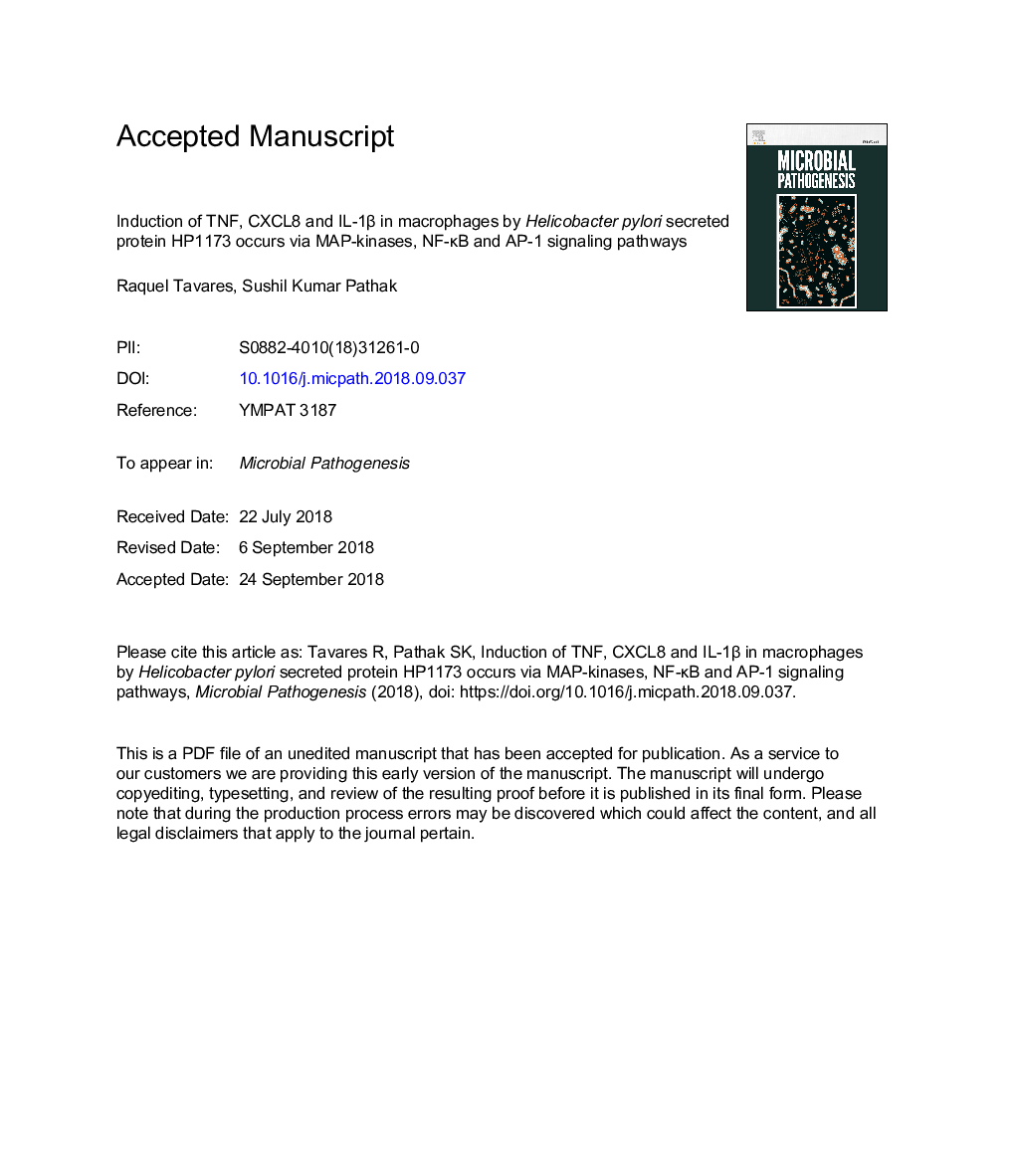| Article ID | Journal | Published Year | Pages | File Type |
|---|---|---|---|---|
| 11029072 | Microbial Pathogenesis | 2018 | 29 Pages |
Abstract
Macrophages play an important role in the generation of host immune responses against H. pylori. In this study, we investigated the effect of a functionally uncharacterized H. pylori secreted protein HP1173 on macrophage responses. In a screen of eight H. pylori strains, similar expression levels of the HP1173 protein were observed in the whole-cell extracts, however; the amount of protein released into the culture medium varied significantly among strains. Recombinant purified HP1173 (rHP1173) was found to bind to THP-1â¯cells that were differentiated into macrophages via phorbol-12-myristate-13-acetate (PMA) treatment. The exposure of macrophages to rHP1173 led to the production of the proinflammatory cytokines TNF and IL-1β and the chemokine CXCL8 in a dose- and time-dependent manner. Under similar conditions, rHP1173 failed to induce apoptosis in macrophages. Furthermore, rHP1173-induced expression of TNF, IL-1β and CXCL8 was observed at the level of gene transcription. Incubation of macrophages in the conditioned medium from a mutant H. pylori strain 26695 lacking HP1173 protein expression resulted in the reduced induction of TNF, CXCL8 and IL-1β, confirming the role of the endogenous protein. Intracellular signaling involving MAPKs, NF-κB and the AP-1 family of transcription factors was required for rHP1173-induced TNF, CXCL8 and IL-1β release from macrophages. The blocking of MyD88, which is an adaptor for multiple toll-like receptors (TLRs), had no effect on rHP1173-induced TNF, CXCL8 and IL-1β release from macrophages, suggesting that Myd88-dependent TLR signaling was not involved in the recognition of and responses to rHP1173. These findings provide novel insights into the potential role of HP1173 in H. pylori infection-associated disease development.
Related Topics
Life Sciences
Immunology and Microbiology
Microbiology
Authors
Raquel Tavares, Sushil Kumar Pathak,
